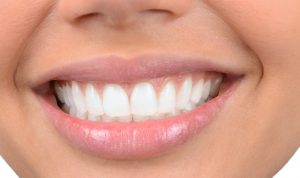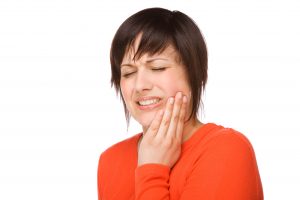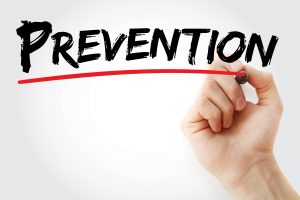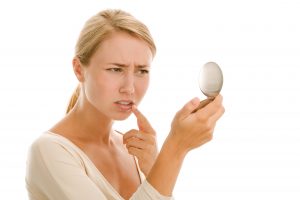 Whether you have just started your treatment with Invisalign, you are in the middle of your journey, or you are still considering whether to do it, there are some very important things to remember to get the most out of your Invisilign treatment. With the invisible aligners, the success of the treatment lies in your hands. If you are investing your time and money into a treatment, you want to make sure that you come out of it at the end with a straighter, more beautiful smile, right? We have made a list of the four top tips to help you get the most out of your Invisalign journey. (more…)
Whether you have just started your treatment with Invisalign, you are in the middle of your journey, or you are still considering whether to do it, there are some very important things to remember to get the most out of your Invisilign treatment. With the invisible aligners, the success of the treatment lies in your hands. If you are investing your time and money into a treatment, you want to make sure that you come out of it at the end with a straighter, more beautiful smile, right? We have made a list of the four top tips to help you get the most out of your Invisalign journey. (more…)
The Importance Of Implants
 Losing even just one tooth can have detrimental impacts on your oral health. Not only does a missing tooth cause a void in the appearance of your smile, but it can limit your chewing, biting, and speaking abilities. More detrimental though is the effect that a missing tooth has on your jaw bone. A missing tooth can lead to a loss of bone density in your jaw. Replacing a tooth with a dental implant can restore the appearance of your smile, bring back your abilities to chew, bite, and speak, and prevent premature bone loss. (more…)
Losing even just one tooth can have detrimental impacts on your oral health. Not only does a missing tooth cause a void in the appearance of your smile, but it can limit your chewing, biting, and speaking abilities. More detrimental though is the effect that a missing tooth has on your jaw bone. A missing tooth can lead to a loss of bone density in your jaw. Replacing a tooth with a dental implant can restore the appearance of your smile, bring back your abilities to chew, bite, and speak, and prevent premature bone loss. (more…)
What Is Full-Mouth Rehabilitation?
 Throughout your life, your smile can take on quite a bit of damage. Whether by accidents, decay, injury, or just general aging and wear, your smile may not look the way it once did. A full-mouth rehabilitation is a comprehensive overhaul of your smile; it can correct both health issues and cosmetic ones. With a full-mouth rehabilitation, you and your dentist will decide on what your mouth’s needs are, what your goals are, and how you want to get there. A full-mouth rehabilitation may include many different treatments spread across multiple consultations and visits to your dentist. (more…)
Throughout your life, your smile can take on quite a bit of damage. Whether by accidents, decay, injury, or just general aging and wear, your smile may not look the way it once did. A full-mouth rehabilitation is a comprehensive overhaul of your smile; it can correct both health issues and cosmetic ones. With a full-mouth rehabilitation, you and your dentist will decide on what your mouth’s needs are, what your goals are, and how you want to get there. A full-mouth rehabilitation may include many different treatments spread across multiple consultations and visits to your dentist. (more…)
A Filling Can Stop A Cavity From Progressing
 Tooth decay is a progressive disease, which means that it will continue to get worse until it is treated. Decay attacks the enamel of the tooth; in the early stage, it will appear as white spots on your enamel. Eventually the attack will lead to a cavity, which means that the decay has broken through the enamel. Once it breaks through the tooth, it cannot be reversed. An early cavity will likely cause no pain, so it may go unnoticed. The cavity will continue to grow, which leaves the tooth vulnerable to breakage. Without a filling, the decay will continue to progress within the tooth. (more…)
Tooth decay is a progressive disease, which means that it will continue to get worse until it is treated. Decay attacks the enamel of the tooth; in the early stage, it will appear as white spots on your enamel. Eventually the attack will lead to a cavity, which means that the decay has broken through the enamel. Once it breaks through the tooth, it cannot be reversed. An early cavity will likely cause no pain, so it may go unnoticed. The cavity will continue to grow, which leaves the tooth vulnerable to breakage. Without a filling, the decay will continue to progress within the tooth. (more…)
Is It Possible To Get A Crown In One Visit?
 A dental crown is permanent protection for a vulnerable tooth. A crown restores your tooth’s ability to bite and chew. It can restore the appearance of your smile, and depending on the location, may restore your ability to speak clearly. A crown offers protection to teeth that have been severely damaged from decay or injury. If a vulnerable tooth is left exposed without a crown, it is left susceptible to further decay or damage. Ultimately, a vulnerable tooth left without a crown is left vulnerable to extraction. Rather than leaving it up for loss, a crown can protect it. Can you get a crown in one visit? (more…)
A dental crown is permanent protection for a vulnerable tooth. A crown restores your tooth’s ability to bite and chew. It can restore the appearance of your smile, and depending on the location, may restore your ability to speak clearly. A crown offers protection to teeth that have been severely damaged from decay or injury. If a vulnerable tooth is left exposed without a crown, it is left susceptible to further decay or damage. Ultimately, a vulnerable tooth left without a crown is left vulnerable to extraction. Rather than leaving it up for loss, a crown can protect it. Can you get a crown in one visit? (more…)
Bridgework And Your Smile
 If you are missing even just one tooth, replacement is important. Missing teeth may cause bone loss in your jaw, increase your risk of losing more teeth, and cause your other teeth to shift placement. Replacing your tooth or multiple teeth can help to prevent some of these potential risks. When considering the options available to replace a tooth or multiple teeth, when do you know which option is the right option? If you have multiple missing teeth, bridgework may be the best replacement option for your smile. A bridge can bridge the gap across one to three missing teeth in a row. (more…)
If you are missing even just one tooth, replacement is important. Missing teeth may cause bone loss in your jaw, increase your risk of losing more teeth, and cause your other teeth to shift placement. Replacing your tooth or multiple teeth can help to prevent some of these potential risks. When considering the options available to replace a tooth or multiple teeth, when do you know which option is the right option? If you have multiple missing teeth, bridgework may be the best replacement option for your smile. A bridge can bridge the gap across one to three missing teeth in a row. (more…)
Reasons To Choose Dental Bonding
 Do you find yourself a bit shy when it comes to smiling? Do you dread taking pictures because you worry about that small chip on your front tooth? Do your teeth make you feel too insecure to smile confidently? Your smile should aid in your confidence not take away from it. Cosmetic dentistry may be the key to restoring your smile back to something that you can feel proud of. Some people find that cosmetic dentistry may not be worth it if they only have one or two teeth with small issues. But if even just one flawed tooth makes your think twice about grinning, it’s worth adjusting. Cosmetic dental bonding is one of the least invasive cosmetic options you could choose. (more…)
Do you find yourself a bit shy when it comes to smiling? Do you dread taking pictures because you worry about that small chip on your front tooth? Do your teeth make you feel too insecure to smile confidently? Your smile should aid in your confidence not take away from it. Cosmetic dentistry may be the key to restoring your smile back to something that you can feel proud of. Some people find that cosmetic dentistry may not be worth it if they only have one or two teeth with small issues. But if even just one flawed tooth makes your think twice about grinning, it’s worth adjusting. Cosmetic dental bonding is one of the least invasive cosmetic options you could choose. (more…)
A Guide To Prevention
 The most important part of keeping your gums and teeth healthy is preventing problems before they arise. Both gum disease and tooth decay are among the most common chronic conditions that Americans face, and both gum disease and tooth decay can be prevented. Issues that come up can be treated early to prevent the issue from progressing into a serious problem. For example, an accident may cause a chip in a tooth. If left untreated the chip may lead to an infection, which further left untreated may lead to a necessary tooth extraction. To save your teeth, remember the value of preventative care. (more…)
The most important part of keeping your gums and teeth healthy is preventing problems before they arise. Both gum disease and tooth decay are among the most common chronic conditions that Americans face, and both gum disease and tooth decay can be prevented. Issues that come up can be treated early to prevent the issue from progressing into a serious problem. For example, an accident may cause a chip in a tooth. If left untreated the chip may lead to an infection, which further left untreated may lead to a necessary tooth extraction. To save your teeth, remember the value of preventative care. (more…)
Laser Treating Cold Sores
 Your dentist cares about keeping your entire mouth looking and feeling healthy, not just your teeth. This includes keeping your lips and gums healthy, too. Cold sores are blisters that erupt on the lips and cause irritation to your mouth. They can be painful, itchy, contagious, and embarrassing. Cold sores are caused by the herpes simplex virus. There is no cure for the virus, but the cold sores themselves can be treated. Your dentist can use laser technology to stop cold sores before they erupt or treat them after they do. Laser treatment rids you of cold sores much faster than traditional treatment of topical ointments or creams. (more…)
Your dentist cares about keeping your entire mouth looking and feeling healthy, not just your teeth. This includes keeping your lips and gums healthy, too. Cold sores are blisters that erupt on the lips and cause irritation to your mouth. They can be painful, itchy, contagious, and embarrassing. Cold sores are caused by the herpes simplex virus. There is no cure for the virus, but the cold sores themselves can be treated. Your dentist can use laser technology to stop cold sores before they erupt or treat them after they do. Laser treatment rids you of cold sores much faster than traditional treatment of topical ointments or creams. (more…)
The Problems Caused By Grinding Your Teeth
 Does stress cause you to you clench your jaw during the day? Do you wake up with pain in your jaw or headaches almost every morning? You may be grinding your teeth while you sleep. Teeth grinding, also known as bruxism, can cause damage to your teeth. It can cause frequent headaches. Grinding your teeth can lead to tooth decay and tooth sensitivity. It can also increase your risk of temporomandibular joint (TMJ) disorder, which affects the hinge of your jaw and it’s alignment. TMJ can lead to pain, tenderness in the cheeks, jaw popping, and lockjaw. Early treatment of bruxism can prevent tooth damage and TMJ disorder from developing. (more…)
Does stress cause you to you clench your jaw during the day? Do you wake up with pain in your jaw or headaches almost every morning? You may be grinding your teeth while you sleep. Teeth grinding, also known as bruxism, can cause damage to your teeth. It can cause frequent headaches. Grinding your teeth can lead to tooth decay and tooth sensitivity. It can also increase your risk of temporomandibular joint (TMJ) disorder, which affects the hinge of your jaw and it’s alignment. TMJ can lead to pain, tenderness in the cheeks, jaw popping, and lockjaw. Early treatment of bruxism can prevent tooth damage and TMJ disorder from developing. (more…)







